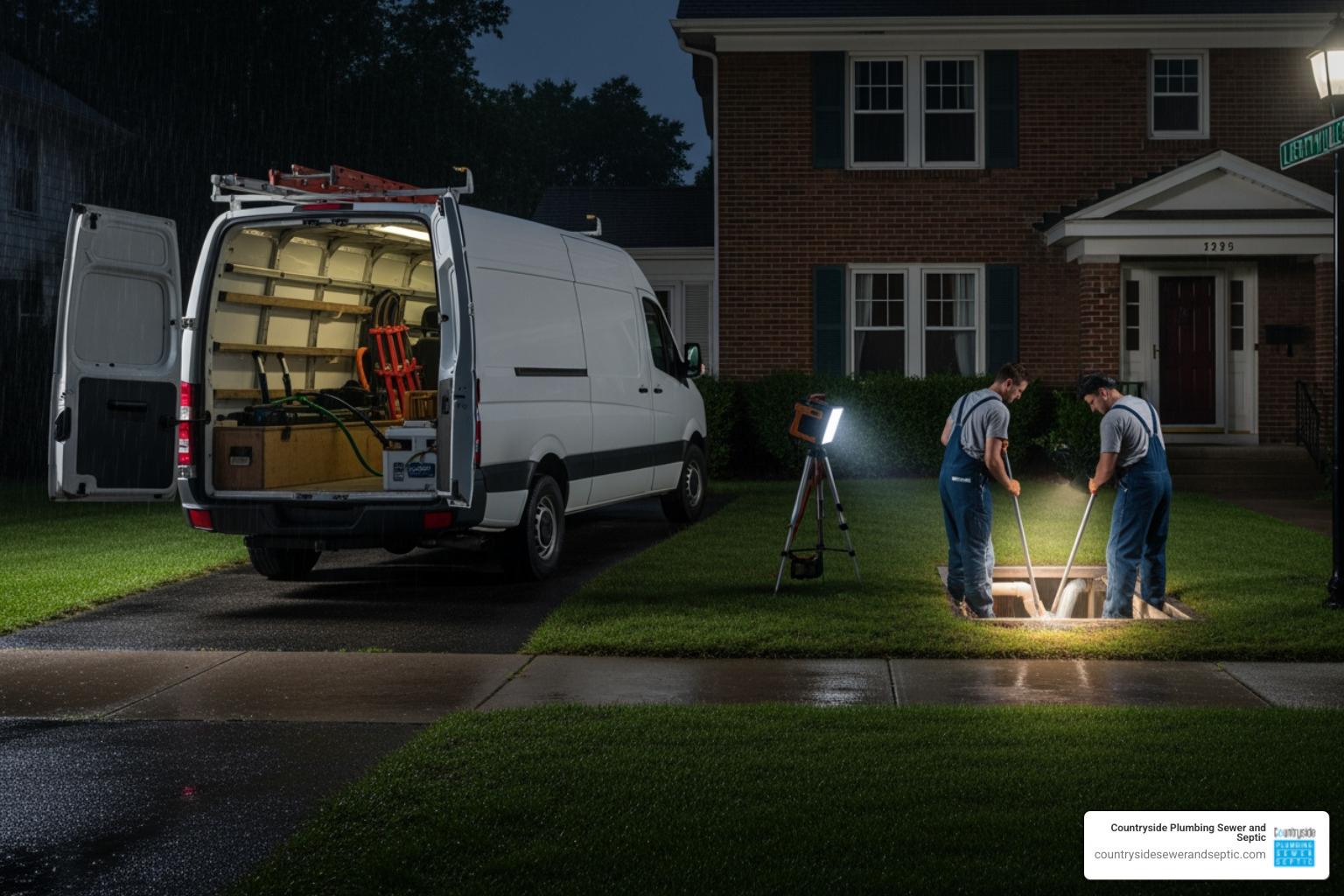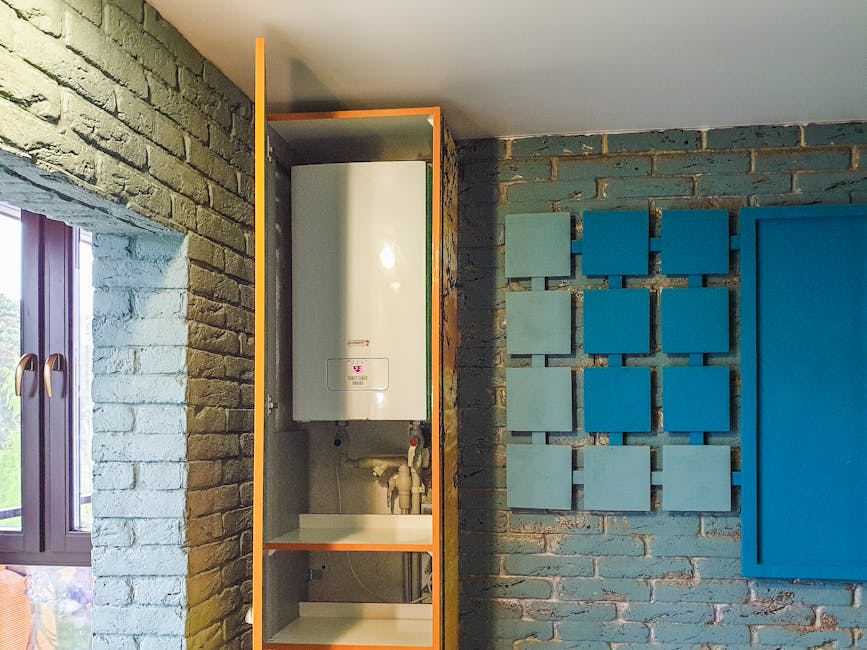Setting up a lift station pump isn’t just another item to check off a home maintenance list. For homeowners in Lake Villa dealing with wastewater challenges due to sloped terrain or low-lying homes, it can be a critical solution. A properly installed lift station pump helps move wastewater from your property to the main sewer line or septic tank, especially if gravity alone won’t do the job. Without it, sewage backups or draining problems can become a routine headache.
Because a lift station pump is such an important system, asking the right questions before installation is key. Whether you're upgrading an existing unit, building a new home, or solving long-term drainage problems, understanding how the system works and what your property needs will help prevent future issues. Many Lake Villa homeowners aren't sure where to begin, so the best place to start is with the basics: what kind of system do you need, and what should you know before installation?
Understanding Your Wastewater Needs
Before committing to a lift station pump installation in Lake Villa, it’s important to get a clear picture of what your home actually requires. Not all systems are created equal, and the wrong type or size can lead to clogs, poor drainage, or even damage to your existing sewer connections.
Your property’s layout matters, especially if it's located on a hill or at a lower elevation than the sewer main. For properties where gravity can’t fully assist wastewater flow, a lift station pump is often needed. But the solution will vary based on the volume of wastewater you expect to produce, the number of plumbing fixtures in the home, the household size, and how far the waste needs to be moved.
There are two main types of lift station pumps:
- Sewage lift pumps: Designed to handle solid waste and raw sewage from bathrooms and other plumbing fixtures. These are used in residential setups where solids need to be pumped to a main sewer or septic tank.
- Effluent pumps: These handle liquid wastewater that’s already been partially treated. They’re often used for graywater like laundry or shower runoff, particularly in systems that connect to a septic tank.
Choosing the wrong type can cause inefficient flow or even system strain. Our professionals look at each property’s unique drainage setup, drainage elevation, and waste output when recommending a solution.
A useful example: a homeowner in Lake Villa with a finished basement and plumbing in the lower level often finds that gravity doesn’t help wastewater move from the basement to the main line. In this case, a sewage lift pump is typically needed to push the waste upward to meet the main sewer line in the yard.
Understanding your wastewater system helps prevent underperformance and surprises post-installation. This step helps guide smarter questions when meeting with professionals and will shape the rest of the project.
What to Ask About Technical Specifications
Once you have a clear understanding of the type of system you need, the next step is getting familiar with the technical details. These specs will shape the long-term performance of your lift station pump and help avoid problems down the road. Here's what to ask:
1. What is the pump’s horsepower (HP)?
- A higher HP might be needed for longer distances or steeper elevations, but too much power for a small home could waste energy.
2. What’s the pumping capacity in gallons per minute (GPM)?
- Make sure the capacity aligns with your home’s typical water usage, especially during peak times like mornings or evenings.
3. Is the pump cycle automatic or manual?
- Most residential systems benefit from automatic cycling, which turns the pump on and off when needed without constant supervision.
4. How does the float switch work?
- The float switch triggers the pump to run when wastewater rises to a certain level. Understanding its reliability and placement is important.
5. Does this model include alarms or backups?
- Some pumps come with high water alarms or backup systems in case the main pump fails.
Having this information helps homeowners compare models and decide what features matter most for performance and safety. It also prevents surprises later, like realizing the pump doesn’t meet your family's water usage or that it requires more space than expected. Getting clear answers upfront means smoother installation and better long-term reliability.
Installation Process and Timeline
Getting a lift station pump installed in your Lake Villa home isn't a one-size-fits-all job. Even under typical conditions, the timeline can vary depending on site access, soil conditions, and how much prep your system needs. If you’re replacing an old unit, there may also be added time for demo and removal. The key is making sure you fully understand what the steps involve before the work begins.
Start by asking what prep work needs to be done in your yard or basement. Some homes may need excavation or trenching, while others might involve smaller adjustments based on where the system is placed. You’ll also want to ask about utility markings. Technicians need to know where existing water, gas, and electrical lines are before digging begins.
Here are a few smart questions to ask when reviewing the installation with our professionals:
- How long will the full install take from permit to final connection?
- Will access to plumbing or water service be interrupted during the project?
- Do I need to be home at any stage of the work?
- How dirty or noisy will the process be?
- Are inspections from the city required, and if so, who handles scheduling?
The lift station pump installation usually wraps up in about a day or two once work begins, but weather, inspection delays, and other unforeseen issues can cause minor shifts. Our technicians can walk you through what your home requires upfront, so there are no surprises once digging or drilling starts.
One example that often comes up is when the discharge piping has to pass underneath a driveway or sidewalk. This adds steps to the project and could mean needing to temporarily close that area. By learning about these pieces ahead of time, homeowners stay better informed and can plan around the disruptions. If you're installing during the warmer months, which is typical in August in Lake Villa, it’s smart to consider any landscaping or sprinkler adjustments you may need afterward.
Maintenance and Lifespan Considerations
After your lift station pump is up and running, it still needs to be checked regularly. Many homeowners think once it's installed, the system will run fine indefinitely, but that isn’t how these pumps work. Like any piece of moving equipment, wear and buildup play a role over time.
To keep your lift station pump working the way it should, it’s important to understand its basic maintenance needs. Most residential systems benefit from having the basin cleaned and inspected once or twice a year, depending on usage. Solids can settle at the bottom of the tank, and grease can build up near the float switch. Both can affect how the pump cycles or cause premature wear.
Some maintenance-related questions to ask:
- How often should the pump and basin be serviced?
- What signs of trouble should I watch for?
- Are there recommended products for cleaning or deodorizing?
- Who should I call if I hear unusual sounds or see slower draining fixtures?
Lifespan is another common concern. Most lift station pumps last for several years, but factors like usage rate, build quality, and how well the system is maintained all impact that timeline. Living in Lake Villa means dealing with seasonal changes, so it’s important to make sure your lift station pump is protected from flooding and that exterior components are properly sealed to handle the elements.
It also helps to have professionals inspect the electrical connections, switch mechanisms, and check valve annually. Choosing a unit rated for your daily waste volume and keeping it clean from buildup will extend performance and prevent breakdowns. If your pump cycles too frequently or sounds louder than it used to, that’s a signal it may need repairs soon or is working harder than it should be.
Setting Your Project Up for Success
Asking detailed questions before installation can mean the difference between years of smooth operation and frequent calls for repairs. For Lake Villa homeowners installing a lift station pump, understanding exactly what the system does, how it performs, and what it needs to stay in good shape allows for better decisions from the start.
Whether you're building a home in a low-lying area or replacing a system that's seen better days, checking things like pump type, horsepower, schedule, and maintenance will help prevent costly surprises. Our professionals in Lake Villa are used to addressing unique setup needs, from basements below grade to unexpected groundwater issues. Clear communication upfront ensures that the pump installed matches your household needs and groundwater conditions.
Your wastewater system shouldn’t be a daily concern. Taking the time to learn your options, ask targeted questions, and rely on experienced technicians for both installation and upkeep gives you confidence moving forward. With the right plan in place, a lift station pump can serve your home reliably for years to come.
For a lasting solution to your home's wastewater challenges, consider the benefits of a well-planned lift station pump installation in Lake Villa and rely on Countryside Plumbing Sewer and Septic to guide you through every phase, from initial inspection to long-term maintenance. For a quick estimate or to book a service visit, please contact us today.
Flexible Financing Options
Get the service you need now pay over time with easy, affordable financing plans.

Blogs


Libertyville's Lifesavers: Your Go-To Guide for Emergency Plumbing


